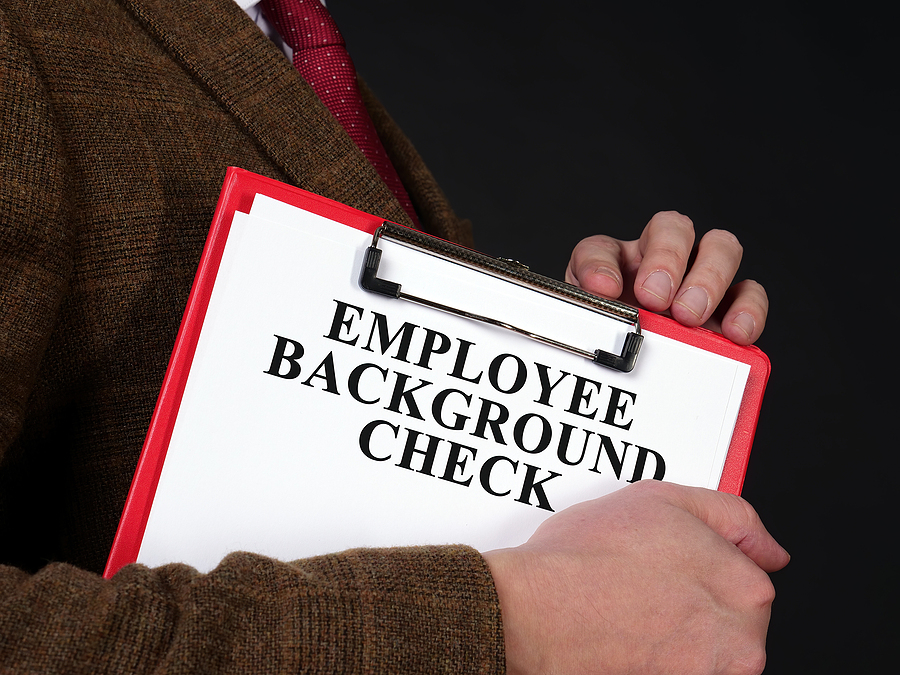Facing a job search with a criminal record on your file can feel overwhelming—especially when you’re not sure what employers can see, what your rights are, or how Indiana’s laws might protect you. This guide breaks it all down so you can walk into the hiring process informed and prepared.
TL;DR: Employers can run background checks revealing criminal history, but federal law and Indiana’s Second Chance Laws give you real protections. You may have the right to expunge past records, legally answer “no” to criminal history questions, and challenge inaccurate reports.
Key Takeaways:
- Under the Fair Credit Reporting Act (FCRA), employers must notify you before running a background check and give you a chance to respond before taking adverse action
- The EEOC prohibits employers from automatically disqualifying job applicants based on a criminal record alone
- Indiana’s Second Chance Laws (I.C. 35-38-9) allow many past offenders to expunge records, with waiting periods ranging from 1 to 10 years depending on offense type
- After expungement, you can legally answer “no” to criminal history questions on most job applications
- Law enforcement agencies, positions working with children, and sex offender registry obligations are among the key exceptions
Table of Contents:
- Understanding Your Rights Under Indiana Second Chance Laws
- Common Details Revealed in a Criminal Background Scan
- How to Prepare for an Employer Background Check
- The Impact of Expungement on Your Job Search
- Frequently Asked Questions
- Quick Recap
- Final Thoughts
- Expungement Eligibility Review in Indianapolis

Understanding Your Rights Under Indiana Second Chance Laws
Indiana law gives past offenders meaningful protections during the hiring process. Under Indiana Code 35-38-9, the state’s Second Chance Law allows eligible individuals to expunge or seal criminal records—including arrests, misdemeanors, and certain felonies.
Once a record is expunged, Indiana law makes it unlawful discrimination (a Class C infraction) for an employer to refuse to hire, suspend, or otherwise penalize someone based on that sealed record (I.C. 35-38-9-10(b)).
Job applications must also be reworded to reflect this. Employers are legally required to frame criminal history questions as: “Have you ever been arrested for or convicted of a crime that has not been expunged by a court?” Under I.C. 35-38-9-10(d), if your record has been expunged, you can answer “no”—and that answer is completely truthful and protected by law.
Beyond expungement, the Fair Credit Reporting Act (FCRA) gives you federal-level rights when an employer runs a third-party background check. Specifically:
- You must be notified in writing before a check is run
- You must provide written consent
- If the employer plans to take an “adverse action” (e.g., not hire you) based on the report, they must give you a pre-adverse action notice, a copy of the report, and a summary of your FCRA rights—before making a final decision
- After an adverse action is taken, you have the right to dispute inaccurate information directly with the consumer reporting agency
These rights exist to give you a fair shot at correcting errors before a decision is made.
Common Details Revealed in a Criminal Background Scan
Employers typically see more than just a conviction. Here’s what a standard criminal background check may surface:
- Arrest records (even without a conviction)
- Misdemeanor and felony convictions
- Incarceration history
- Pending criminal charges
- Sex offender registry status
- Court records including case outcomes
One important note: under the FCRA, consumer reporting agencies cannot report arrests older than seven years that did not result in a conviction—unless the job pays $75,000 or more annually. Convictions, however, can be reported indefinitely.
The EEOC is clear that arrests alone are not proof of criminal conduct. As their 2012 Enforcement Guidance states: “The fact of an arrest does not establish that criminal conduct has occurred.” An employer cannot legally disqualify you based solely on an arrest record.
How to Prepare for an Employer Background Check
Preparation is your best defense. Before a potential employer runs a check on you, take these steps:
1. Know what’s on your record
Order a copy of your own criminal history report. Errors are more common than people realize—outdated records, incorrect classifications, and expunged convictions that still appear can all affect your chances.
2. Review for inaccuracies
If something on your report is wrong, dispute it directly with the consumer reporting agency. Under the FCRA, they are required to investigate and correct legitimate errors.
3. Check your expungement eligibility
If your record qualifies for expungement under Indiana law, completing that process before your job search begins can significantly improve your prospects.
4. Prepare to discuss your record honestly
If your record isn’t expunged, think carefully about how to address it. The EEOC encourages employers to conduct an individualized assessment rather than applying blanket disqualification policies. That means you may have the opportunity to explain the circumstances, show evidence of rehabilitation, and demonstrate your fitness for the role.
5. Research the employer’s policies
Some industries—including healthcare, finance, and education—have stricter regulations around criminal history. Knowing this in advance helps you target roles where your background is less likely to be a barrier.
The Impact of Expungement on Your Job Search
Expungement can be a genuine turning point. Under Indiana’s Second Chance Laws, it allows you to legally present yourself as someone with a clean slate in most hiring contexts.
Here’s a summary of what can be expunged and when:
| Record Type | Waiting Period |
|---|---|
| Arrest without conviction | 1 year from arrest or charge |
| Misdemeanor conviction | 5 years from conviction |
| Class D / Level 6 felony (no bodily injury) | 8 years from conviction |
| Felony (no serious bodily injury or death) | 8 years from conviction OR 3 years after sentence completion |
| Higher-level eligible felonies | 10 years from conviction OR 5 years after sentence completion |
After expungement, Indiana law mandates that you “be treated as if the person had never been convicted of the offense” (I.C. 35-38-9-10(e)). Civil rights—including the right to vote, hold public office, and serve as a juror—are fully restored.
Important exceptions to know:
- Law enforcement agencies may still ask about and consider expunged records when hiring
- Sex offender registry obligations are not removed by expungement
- Schools may access sealed records if you’ll have direct contact with students
- Domestic violence convictions do not automatically restore firearm rights through expungement
One more thing worth knowing: Indiana law permits only one expungement petition per lifetime for convictions. It’s critical to include all eligible offenses in a single petition.
Ready to find out if your record qualifies? Our Indianapolis expungement attorneys specialize in Indiana’s Second Chance Laws and can guide you through the expungement process from start to finish. Services start as low as $850. Schedule a free eligibility review today .
FAQs About Criminal Records and Hiring
Can an employer in Indiana ask about my criminal history on a job application?
Yes, but the question must be framed to exclude expunged records. Under I.C. 35-38-9-10(d), employers can only ask about convictions or arrests that have not been expunged.
What if my expunged record still shows up on a background check?
As of July 1, 2021, criminal history providers that report expunged convictions in Indiana face legal penalties under I.C. 24-4-18-8. You can dispute the report with the provider and, if necessary, seek legal counsel.
Can an employer reject me solely because of a conviction?
The EEOC strongly discourages blanket disqualification policies based on criminal records. Employers covered by Title VII must consider the nature of the offense, time elapsed, and the nature of the job—the three Green factors—before making a decision. Automatic exclusions based on any and all criminal conduct are inconsistent with federal guidelines.
Does expungement affect my professional license?
Licensing boards generally cannot deny or revoke a license based on an expunged conviction. However, expungement does not alter prior disciplinary proceedings that already occurred, per Whaley v. Med. Licensing Bd. of Indiana, 184 N.E.3d 721 (Ind. Ct. App. 2022).
Can I waive my right to expungement as part of a plea deal?
No. Under I.C. 35-38-9-11, any waiver of expungement rights included in a plea agreement is invalid and unenforceable.
Quick Recap:
- Employers must obtain your written consent before running a background check
- You must receive a pre-adverse action notice before being rejected based on your report
- You have the right to dispute inaccurate information in your report
- Arrest records alone cannot legally disqualify you from employment
- Indiana’s Second Chance Laws allow eligible records to be expunged, with waiting periods of 1–10 years
- After expungement, you can legally answer “no” to criminal history questions on most applications
- Exceptions apply for law enforcement roles, sex offender registry obligations, and some licensed professions
- You only get one expungement petition per lifetime for convictions—make it count
Take the First Step Toward a Cleaner Slate
A past offense doesn’t have to define your future employment. With the right knowledge—and potentially the right legal support—you can approach your job search with greater confidence and clarity.
If you’re unsure whether your record qualifies for expungement under Indiana’s Second Chance Laws, our Indianapolis attorneys are here to help. Get a free case review today. Services start as low as $850, and our team will walk you through every step of the process.
Related Post: How to Get a Job with a Criminal Record: Proven Strategies That Work









